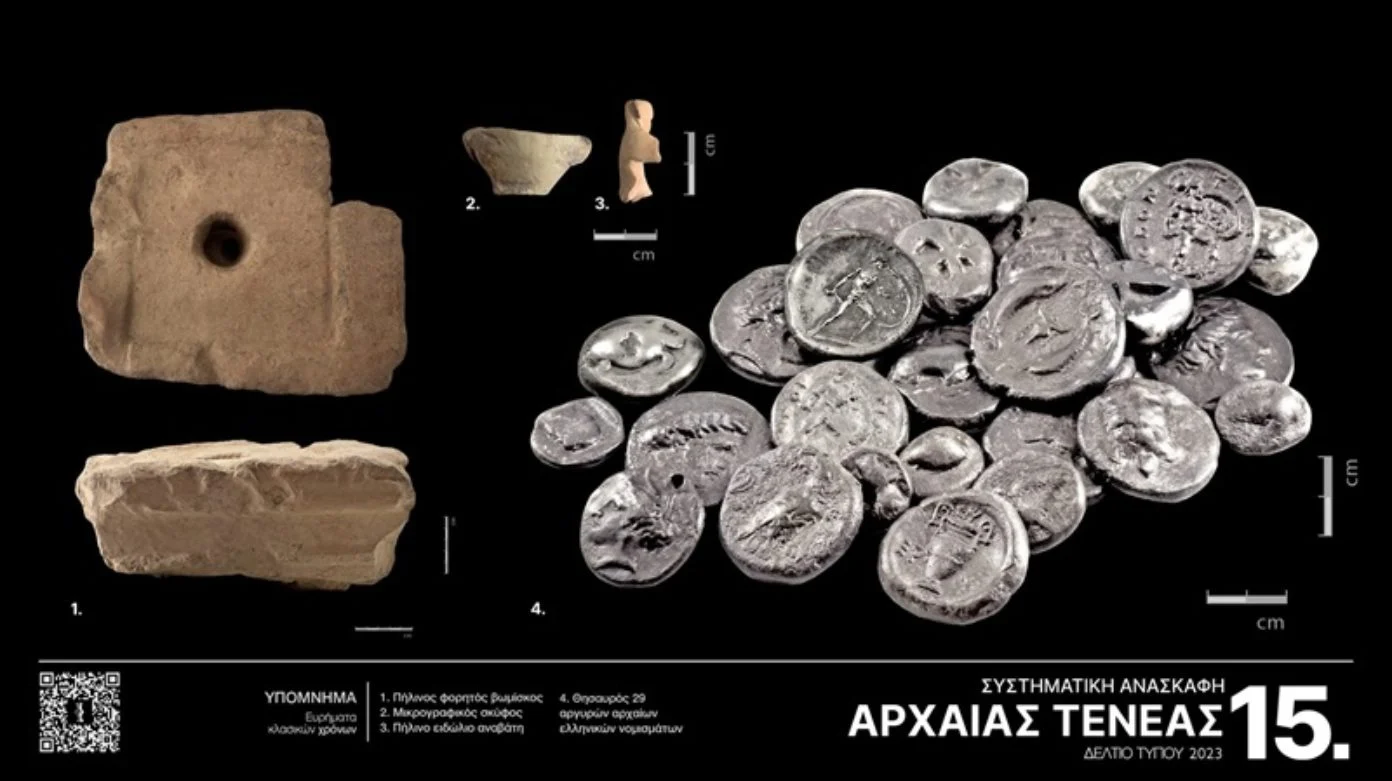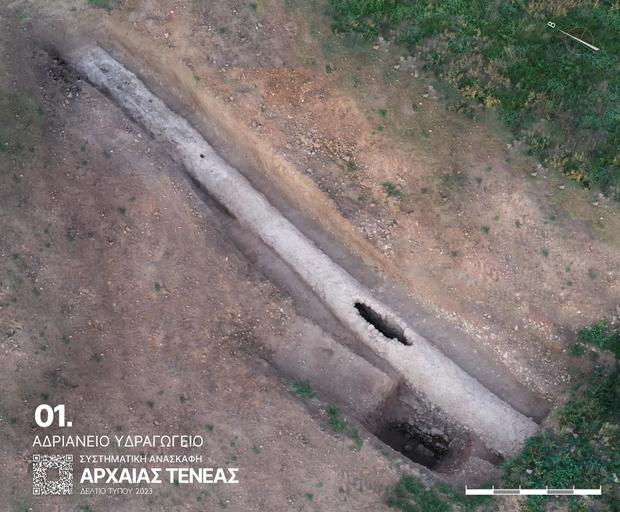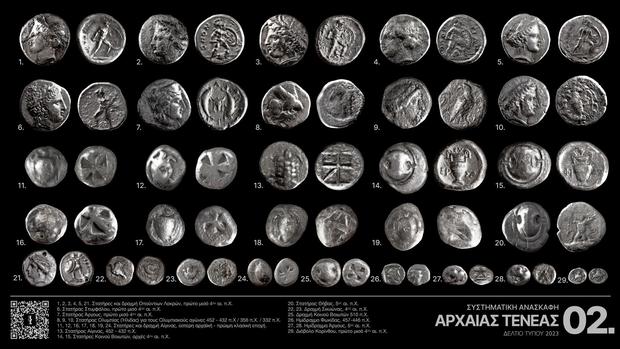
Rare coins and part of ancient aqueduct built by Roman emperor unearthed in Greece
A section of an aqueduct thought to have been built by the Roman emperor Hadrian to supply water to Corinth from ancient Tenea was among the project’s most notable archeological finds, the Greek Ministry of Culture said in a translated announcement. Hadrian ruled over the Roman Empire during the first century A.D., and remnants of another structure he ordered to be built during his reign, now known as Hadrian’s auditorium, was uncovered in Rome in 2009 while construction was underway for a new subway line.Finding Hadrian’s aqueduct was significant for several reasons, the first being that it was one of the largest hydraulic systems to exist in ancient Greece. Unearthing a portion of it meant that researchers could finally precisely plot the route of the aqueduct, according to the culture ministry.
The course of the aqueduct and its contributions to early Greek civilization throughout the region is of major interest to historians. The system is mentioned in ancient texts, and another aqueduct built by Hadrian that carried water to Athens has been more thoroughly studied.
The newly uncovered section of Hadrian’s aqueduct is about 100 feet long, with walls over 10 feet high, the culture ministry said. Built from mortar and stone and encapsulated by a rounded roof, the aqueduct was situated along a river and carried water in an interior chamber that measured about 4 feet high and 2 feet wide.
Along with the discovery of the aqueduct, the excavations also revealed a “prehistoric settlement” in the area that dates back to the Early Bronze Age, between about 2600 and 2300 B.C. The settlement confirmed to historians that people lived in ancient Tenea prior to the fall of Troy around 1180 B.C., the culture ministry said.
Archaeologists additionally found a building complex that can be traced from the Archaic period to the Hellenistic period, covering several centuries, from about 750 to 30 B.C. Within the complex, they found treasures, including 29 silver coins from ancient Greece, a clay altar, a miniature vase and a figurine of a horse with a rider. Some of the coins date as far back as the sixth century B.C.
The culture ministry said many of the coins found were “among the rarest and most historic coins of ancient Greece,” including three silver staters that were minted at Olympia during the Olympic Games and one “depicting Hercules suffocating two snakes with his hands.” The treasure reinforces historians’ understanding of the ancient city as a religious site, since the Olympic Games themselves were once a religious event.
The excavation uncovered other pieces of ancient history, too, like Roman-era building complexes with individual rooms and grave sites from ancient periods through to Roman times.
SOURCE:
https://www.cbsnews.com/news/tenea-rare-coins-aqueduct-roman-emperor-hadrian-greece-archaeologists/



